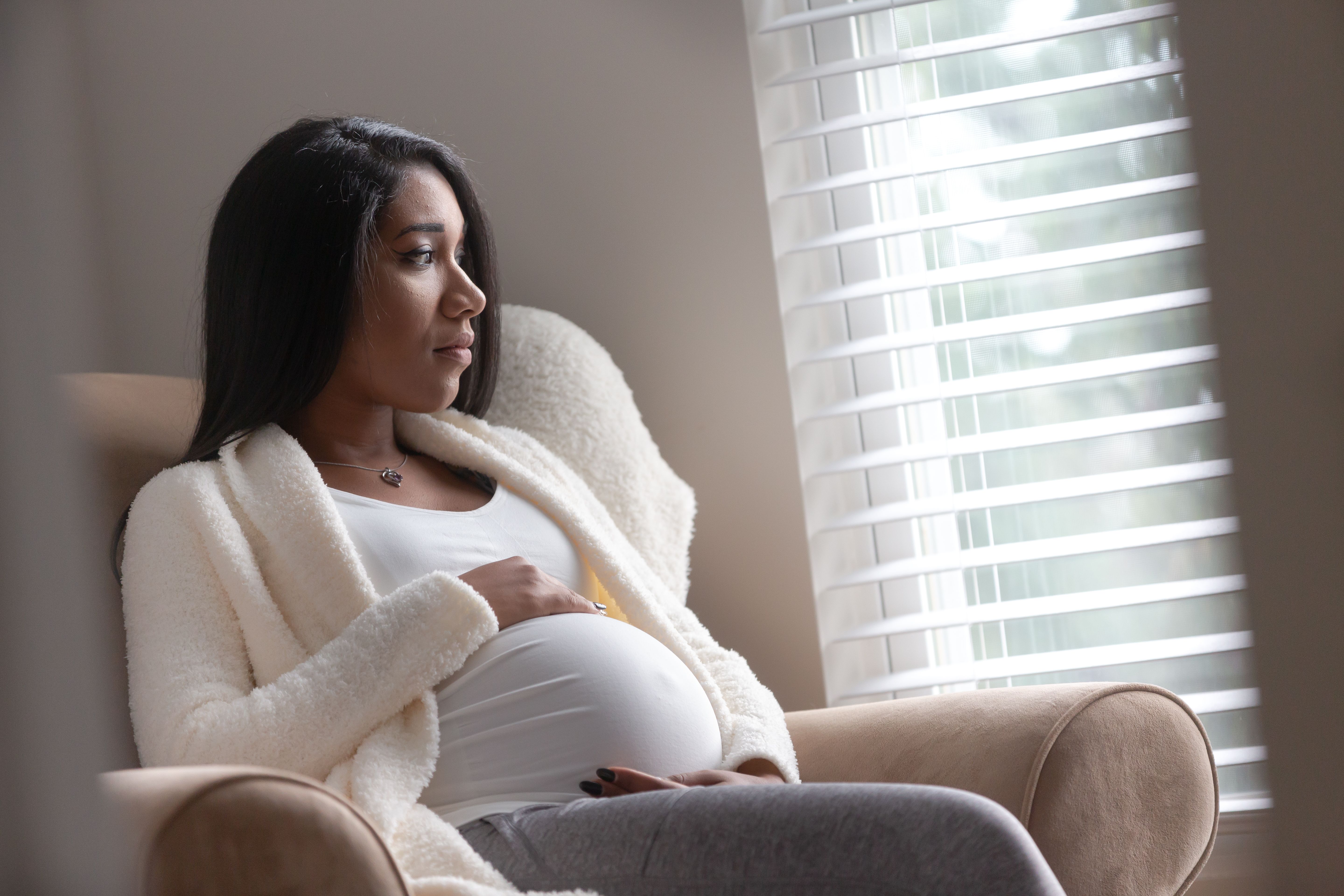There’s a lot of attention given to postpartum depression, which are feelings of sadness and depression that develop after giving birth. But not as much focus is given to prenatal depression, which are similar feelings that develop during pregnancy. There’s an expectation that pregnancy is a happy time in a person’s life, but don’t assume this makes you immune to depression. As exciting as expecting can be, it can also be a time of high stress and anxiety.
Prenatal depression is likely more common than you think – research estimates that up to 7% of pregnant people experience it. If you’re feeling depressed or sad when expecting, don’t ignore it. Below, we review the most common signs of prenatal depression that can help you identify if you’re struggling with this in pregnancy.
12 Anxiety
Sadness and/or hopelessness aren’t the only feelings that characterize depression. It’s also common to experience symptoms of anxiety, such as the following:
- Irritability
- Restlessness
- Feeling weak
- Sleep problems
- Breathing rapidly
- Increased heart rate
- Trouble concentrating
- Difficulty controlling feelings of worry
- Unexplainable pains (i.e. stomach ache, headache)
If you have a personal or family history of anxiety, this puts you at a higher risk of developing depression in anxiety.
11 Low Self Esteem
You may also experience lower self-esteem with prenatal depression, including doubts over whether you’ll be a good mother. Low self-esteem isn’t just a feeling. It can also prevent you from trying new things, putting yourself in social situations, or even accomplishing daily tasks.
10 Life Stressors
If you’re experiencing major stressors in your life, this can trigger and/or exacerbate prenatal anxiety. This includes anything upsetting or anxiety-inducing, such as relationship problems, financial troubles, and the loss of a loved one.
It doesn’t have to be a current stressor. Prenatal depression can be triggered by past trauma or event that you’re now processing, particularly miscarriage, stillbirth, or the loss of an infant.
9 Poor Weight Gain
Prenatal depression isn’t just characterized by changes in your mood and emotions. It’s also often accompanied by physical symptoms, such as poor weight gain.
Depression may reduce your appetite and/or make it difficult to eat a well-balanced diet. This can prevent you from gaining enough weight during pregnancy, which can put your baby’s health at risk. The amount of weight you should gain in pregnancy looks different depending on your body type. But take it seriously if your doctor is concerned by your lack of weight gain.
8 Changes In Sleep
It’s normal to experience changes to your sleeping patterns during pregnancy. It’s often harder to sleep comfortably in later trimesters. But this can also be an indicator of depression, especially when in tandem with other side effects. Problems falling or staying asleep as well as restless leg syndrome can all indicate depression.
7 Low Libido
Likewise, low libido can be a side effect of pregnancy, though some people experience a higher sex drive. But this can also be a discreet sign of prenatal depression. If you have low libido accompanied by other symptoms, you may be suffering from prenatal depression.
6 Lack Of Energy
If you’re constantly feeling exhausted and/or weak, it may not just be the physical demands of pregnancy taking a toll on you. This is also a common symptom of depression. If your energy doesn’t improve regardless of what you do, especially if you feel unmotivated and weak, then it can indicate prenatal depression.
5 History Of Depression
People with a personal or family history of depression are at higher risk of developing the condition, whether pregnant or not. Inform your doctor of your mental health history, especially if you’ve had depression before.
4 Poor Social Support
Prenatal depression is more common in people who lack a strong support system. Not only can this amplify your stress, but it can reinforce feelings of loneliness. If you’re feeling isolated during pregnancy, it can indicate depression.
3 Unintended Pregnancy
Likewise, another risk factor for prenatal depression is if the pregnancy was unintended. There’s often more stress and conflict in such situations, which can trigger and/or exacerbate your feelings of depression.
2 Intimate Partner Violence
People who have or currently are experiencing intimate partner violence are at a higher risk of developing depression. This increases the stress and anxiety in your life, feeding the depressive feelings. Even having conflict with a current or former romantic partner increases the risk of prenatal depression.
If you have a history of intimate partner violence and are experiencing other symptoms, it can indicate depression.
1 Thoughts Of Self-Harm
Finally, thoughts of self-harm (including but not limited to suicide) are a major indicator of depression, even if you haven’t acted on them. Don’t hold these feelings in. Express them to a trusted loved one to get yourself help.
For more information on prenatal depression, especially if you believe you or someone you love is struggling with it, please reach out to a medical and/or mental health professional.
Sources: NIH, Science Direct, Mayo Clinic, NHS,

.jpg)

.jpg)


.jpg)

.jpg)




